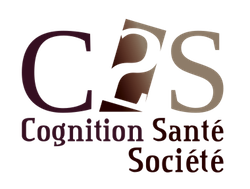Recognition of Basic Emotions with and without the Use of Emotional Vocabulary by Adolescents with Down Syndrome.
Résumé
BACKGROUND: Children with Down syndrome (DS) often experience behavioral and emotional issues that complicate their socialization process and may lead to psychopathological disorders. These problems may be related to deficits affecting emotional knowledge, particularly emotional vocabulary. Because emotional vocabulary makes it easier for typically developing children to identify emotions, a deficit affecting it in DS could be problematic. METHODS: Twenty-eight adolescents with DS matched with typically developing (TD) children for their score on the Benton Facial Recognition Test were asked to recognize six emotional expressions presented in the form of filmed sequences, based on (1) nonverbal cues such as prosody, and (2) an emotional label. RESULTS: The adolescents with DS recognized the six basic emotional expressions at a level comparable to that of the TD children in both conditions (with and without emotional vocabulary), but the facilitating effect of vocabulary was lower in that group. CONCLUSIONS: This study does not show a deficit affecting emotion recognition in DS, but it emphasizes the importance of early acquisition of emotional knowledge in this syndrome. Regular and varied use of internal state words should be encouraged in familial interactions, and education should include specifically adapted social and emotional learning programs.
Domaines
Psychologie| Origine | Fichiers éditeurs autorisés sur une archive ouverte |
|---|

